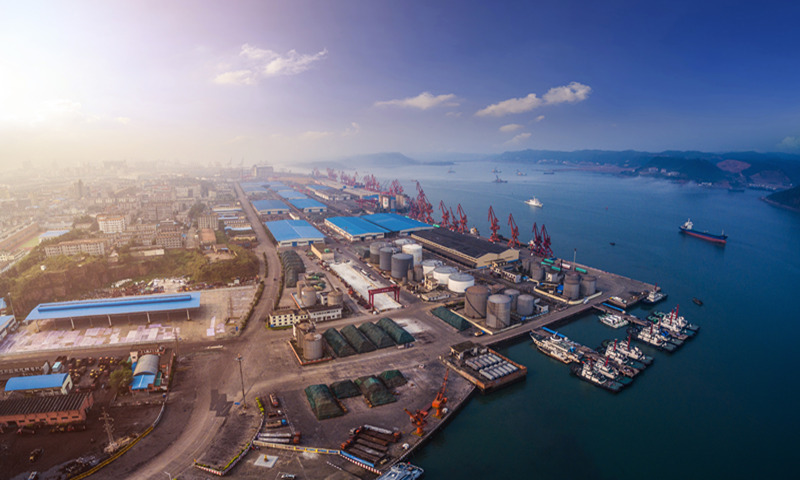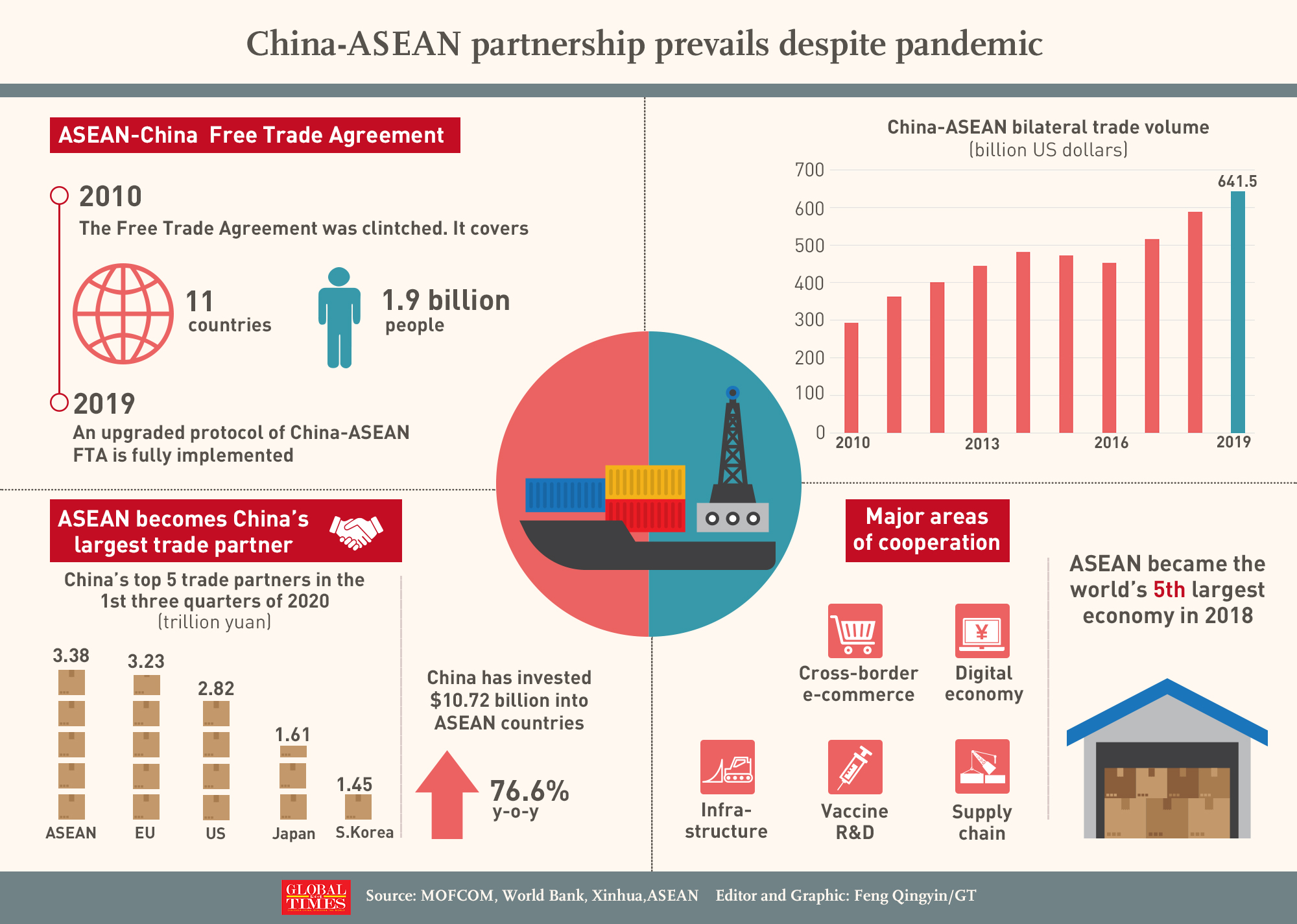Regional fair to get boost from RCEP
By GT staff reporters Source: Global Times Published: 2020/11/26 21:19:37
China, ASEAN more closely integrated in economy

Fangcheng Port in South China's Guangxi Zhuang Autonomous Region, which sits on the New International Land-Sea Trade Corridor route connecting Southwest China's Chongqing Municipality, the ASEAN and Singapore Photo: VCG
Representatives from countries attending the 17th China-ASEAN Expo (CAEXPO) see the just-signed Regional Comprehensive Economic Partnership (RCEP) deal as a fresh driver of trade and investment for the region, with a Chinese Foreign Ministry spokesperson hailing "golden decades" of trade ties between China and members of the Association of Southeast Asian Nations (ASEAN).
Despite the lingering COVID-19 pandemic, China will launch the four-day expo in Nanning, South China's Guangxi Zhuang Autonomous Region, on Friday, on the heels of the signing of the RCEP deal, a historic trade pact that forms the world's largest free trade zone.
According to the Ministry of Commerce, the expo will have 5,400 booths, with 803 of them run by foreign entities. Entities from ASEAN member countries total 574. There will also be 1,581 companies participating via online showrooms.
Trade between China and ASEAN member countries jumped to $641.5 billion in 2019 from $292.8 billion in 2010, promoting mutual prosperity during what can be described as a "golden decade" of trade ties, Foreign Ministry spokesperson Zhao Lijian said on Thursday in a briefing on the expo.
Zhao said China would like to use the expo to seek further regional integration with ASEAN members and embark on another golden decade.
China's trade relationship with ASEAN has tightened amid the pandemic, with the latter becoming China's largest trading partner this year. China's investment in the bloc increased 70 percent in the first three quarters of 2020 from last year.
The 17th CAEXPO will provide trade opportunities for both the demand and supply sides in the region, and facilitate promotion of hard-hit regional cooperation, Shen Minghui, secretary-general of the Center for APEC and East Asian Cooperation with the Chinese Academy of Social Sciences, told the Global Times.
"Facing COVID-19 pandemic, I hope such an expo could enable ASEAN countries to enjoy and reap benefits from the lucrative Chinese market and China's opening-up. I hope more ASEAN products could be exported to China, bringing more countries in Southeast Asia on board the 'express train' of China's fast economic recovery," Shen said.
Attendees at the expo said the RCEP deal signed on November 15 will further promote trade and investment in the region.
The signing of RCEP marked a win over protectionism and in the region, and it represented a symbolic step forward into free trade and open markets, Deputy Minister of International Trade and Industry of Malaysia Lim Ban Hong said at the press conference on Thursday.
"As a result, RCEP member countries can build stronger supply chains, diversify the materials and resources used in production, and minimize the cost of goods. In general, the RCEP has created a better investment environment for the whole Southeast Asia region," said Lim.
Lim pins his hopes on China's boost to regional economies, saying that China's development vision for 2035 will be the impetus for the economic growth and recovery of the entire Southeast Asian region.
"We can always hope to upgrade cooperation between China and ASEAN, and CAEXPO can be a stepping stone toward more cooperation among member countries. It is a good opportunity for all countries to reform and enhance their production capability in order to cooperate and compete with the global community," Arthayudh Srisamoot, Thailand Ambassador to China, said at a press conference on Thursday.
There are also representatives from countries outside the region.
Pakistan, which is attending the expo as special partner country, will display major export and cultural items including sports goods, sportswear, garments, bed linen, spices and food, read a statement sent to the Global Times by the Pakistan Embassy on Thursday.
Shen applauded the business and trade feast for companies from many countries instead of that from the ASEAN, underscoring its role to promote broader exchanges when goods and personnel restrictions remain and probably bring huge trade growth amid such a challenging period when global economy is taking a beat.

Despite the impacts of COVID-19, ASEAN has surpassed the EU to become China’s No.1 trade partner in the 1st three quarters of 2020. ASEAN–China Free Trade Agreement — covering a population of 1.9b people — has accelerated integration of both economies and created tens of thousands of jobs. Infographic:GT
Posted in: COMPANIES